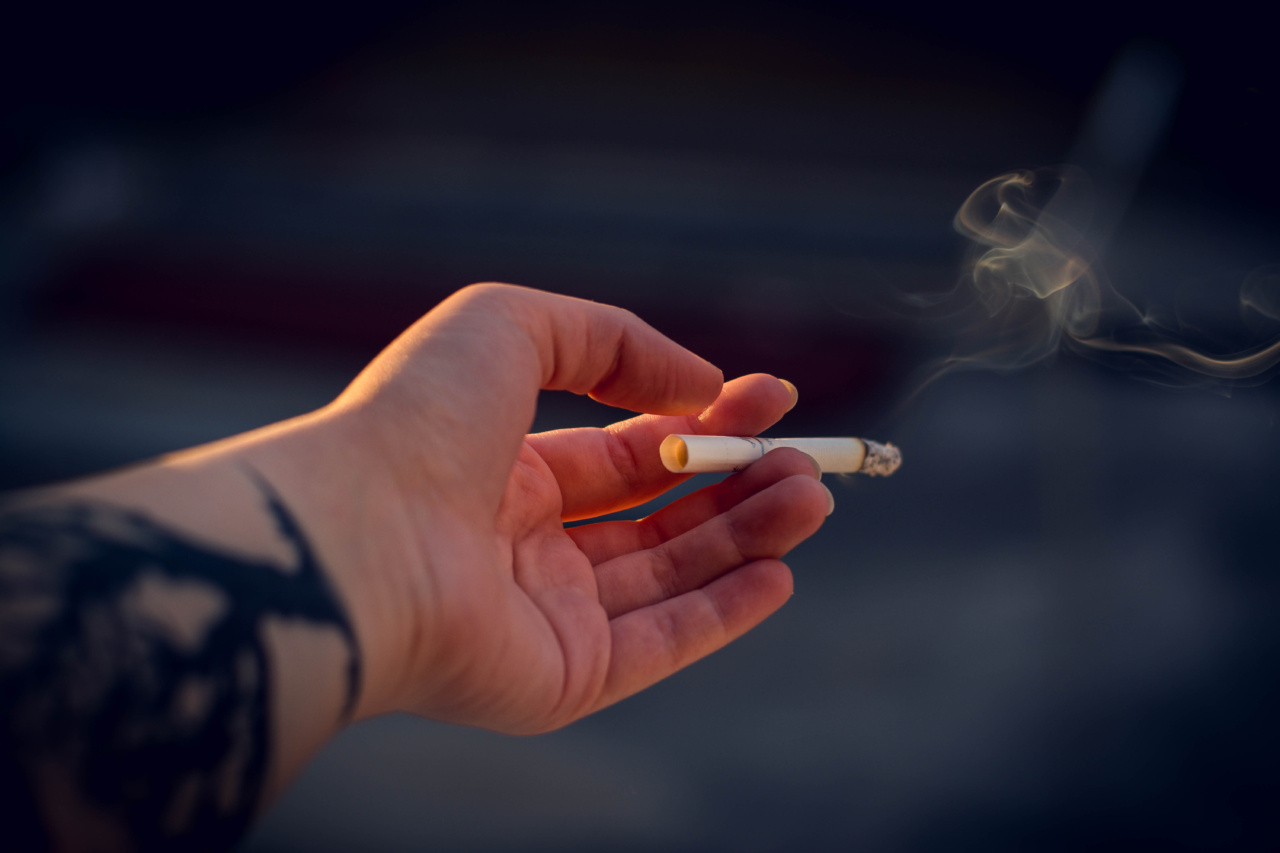Smoking has long been identified as a harmful habit that not only affects the smoker but also those around them.
Second-hand smoke, the inhalation of smoke from someone else’s cigarette, has been widely studied and proven to cause a range of health issues. However, more recently, scientists have started investigating the effects of third-hand smoke, a type of residual smoke contamination that lingers long after the cigarette has been extinguished.
Third-hand smoke refers to the toxins and chemicals that remain on surfaces like walls, furniture, and clothing even after the smoke has dispersed.
The Link Between Third-Hand Smoke and Dermatitis
Dermatitis, a condition characterized by inflamed, itchy skin, has been found to be closely associated with exposure to third-hand smoke.
The toxic compounds present in the residue left by cigarette smoke can irritate the skin and cause flare-ups in individuals already susceptible to dermatitis. The chemicals can also disrupt the skin’s protective barrier, making it more vulnerable to external irritants.
Research suggests that the nicotine and other chemicals in third-hand smoke can trigger an immune response in the skin, leading to inflammation and exacerbating existing skin conditions such as atopic dermatitis, contact dermatitis, and even psoriasis.
Linking Third-Hand Smoke and Psoriasis
Psoriasis is a chronic autoimmune skin condition characterized by the rapid buildup of skin cells, resulting in thick, red patches with silvery scales.
While the exact cause of psoriasis is unknown, numerous studies have shown a correlation between smoking and psoriasis development or worsening of symptoms. Third-hand smoke exposure may be a contributing factor in triggering or aggravating psoriasis in susceptible individuals.
Studies have indicated that exposure to third-hand smoke can disrupt the immune system, leading to an overactive inflammatory response. This dysregulation of the immune system is thought to play a role in the development and progression of psoriasis.
Additionally, the chemicals present in third-hand smoke can directly irritate the skin, exacerbating the symptoms associated with psoriasis.
Protecting Your Skin from Third-Hand Smoke
If you or someone you know has a skin condition such as dermatitis or psoriasis, taking steps to minimize exposure to third-hand smoke can help alleviate symptoms and prevent flare-ups. Here are some measures you can take:.
1. Avoid Smoking and Smoky Environments
The most effective way to protect your skin from the harmful effects of third-hand smoke is to avoid smoking altogether. Quitting smoking not only benefits your skin but also your overall health in numerous ways.
Additionally, it is important to limit your exposure to smoky environments such as bars, clubs, or homes where smoking is allowed.
2. Create a Smoke-Free Home
If you live with a smoker or have visitors who smoke, it is essential to create a smoke-free environment within your home. Implement a strict no-smoking policy indoors, and encourage smokers to smoke outside.
Regularly ventilate your living space by opening windows to allow fresh air in and smoke out.
3. Wash Fabrics Exposed to Smoke
Washing fabrics such as clothing, curtains, and bedding regularly helps remove any lingering third-hand smoke residue. Use a high-quality detergent and consider adding vinegar to the wash to neutralize odors and remove toxins effectively.
Dry your laundry outdoors whenever possible to benefit from the natural air and sunlight.
4. Clean and Vacuum Often
Regularly clean and vacuum your home to rid surfaces of third-hand smoke particles. Pay special attention to areas where smokers frequent, such as living rooms and bedrooms.
Use a damp cloth or microfiber cloth to wipe down surfaces, and vacuum using a HEPA filter to trap small particles effectively.
Seeking Medical Advice
If you are experiencing severe dermatitis or psoriasis symptoms that you believe may be linked to third-hand smoke exposure, it is important to consult a dermatologist.
They can evaluate your condition and provide appropriate treatment options, which may include topical medications, light therapy, or systemic medications depending on the severity of your condition.
Conclusion
Protecting your skin from third-hand smoke is crucial in managing the symptoms of dermatitis and psoriasis.
By understanding the links between third-hand smoke and these skin conditions, you can take proactive steps to minimize exposure and keep your skin healthy. Create a smoke-free environment, maintain good hygiene practices, and seek medical advice when necessary to ensure the best possible care for your skin.





























